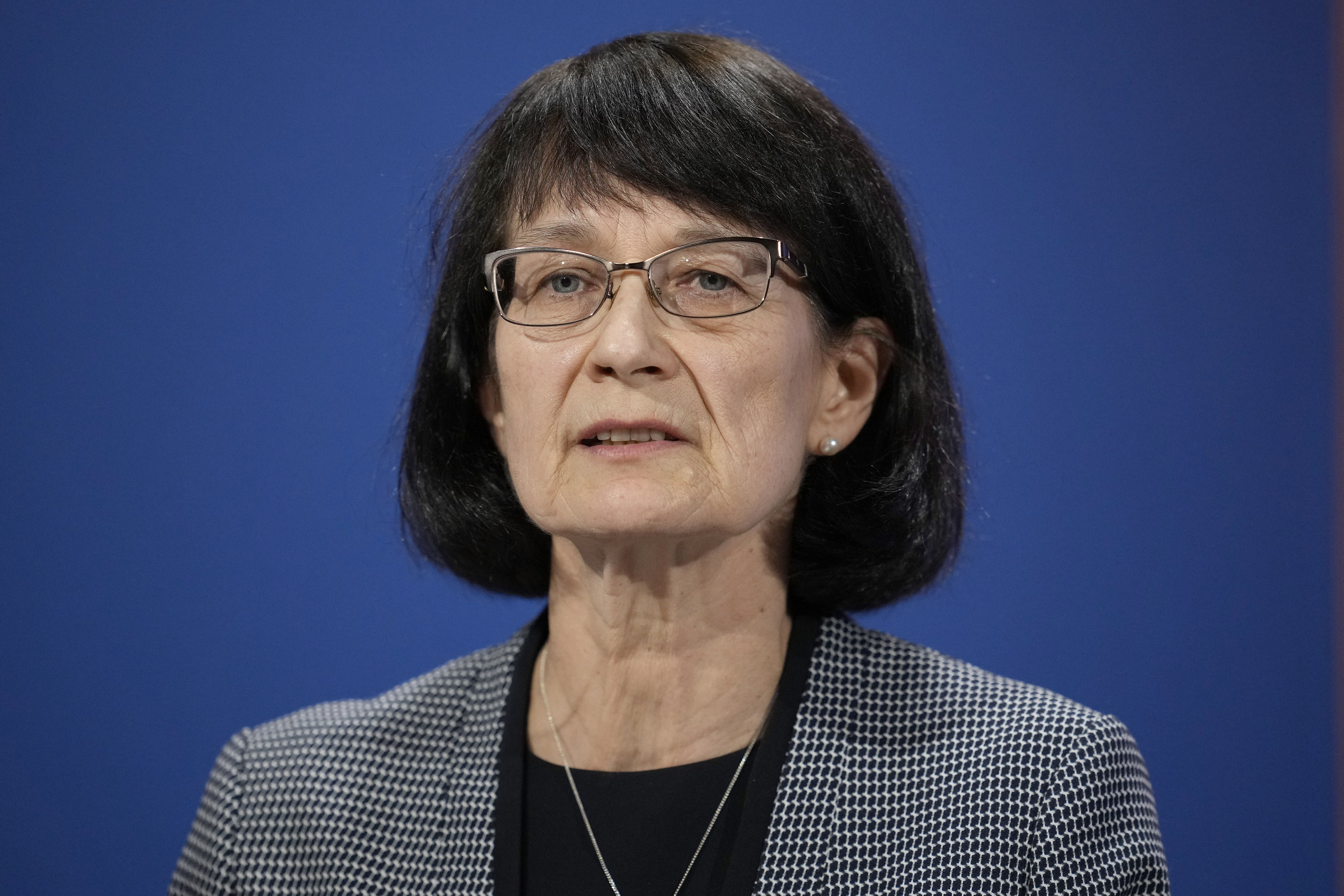Overall issue was capacity to deal with pandemic, UK Covid-19 Inquiry hears
Professor Dame Jenny Harries was deputy chief medical officer from 2019 to 2021 and is now chief executive of the UK Health Security Agency.

Your support helps us to tell the story
From reproductive rights to climate change to Big Tech, The Independent is on the ground when the story is developing. Whether it's investigating the financials of Elon Musk's pro-Trump PAC or producing our latest documentary, 'The A Word', which shines a light on the American women fighting for reproductive rights, we know how important it is to parse out the facts from the messaging.
At such a critical moment in US history, we need reporters on the ground. Your donation allows us to keep sending journalists to speak to both sides of the story.
The Independent is trusted by Americans across the entire political spectrum. And unlike many other quality news outlets, we choose not to lock Americans out of our reporting and analysis with paywalls. We believe quality journalism should be available to everyone, paid for by those who can afford it.
Your support makes all the difference.The capacity of UK health systems to deal with a pandemic was more of an issue than organisational reforms before the Covid-19 outbreak, an expert has said.
Professor Dame Jenny Harries, who was deputy chief medical officer from 2019 to 2021 and is now chief executive of the UK Health Security Agency (UKHSA), told the UK Covid-19 Inquiry that a number of changes created uncertainty, but she did not consider that to be the main issue.
Asked whether structural reforms, such as the creation of Public Health England (PHE) in 2013, had an impact on pandemic preparedness, Dame Jenny said there “definitely was uncertainty”.
She added: “In fact, we’ve submitted a number of papers where different parts of the system have tried to work proactively to recognise different roles and responsibilities.
My feeling is that the overall issue is more to do with capacity, rather than roles and responsibilities
“That said, we’ve also put forward in the evidence a survey which suggests actually that people do understand them.
“So my feeling is that the overall issue is more to do with capacity, rather than roles and responsibilities.”
The former regional director and deputy medical director of PHE also answered questions about the organisation’s funding in the years leading up to the pandemic.
She said the body had seen a real-terms funding cut of 40% in 2019/20 compared with 2013/14, adding: “Not only was the grant in aid dropping, but the costs were going up.
“The organisation, therefore, in order to sustain itself, became very dependent on its earned income.
“It has absolutely brilliant scientists, and it can generate some income. But by the end of this period, my view would be that rather than having a system that was a critical system for the UK founded on a substantial grant that could maintain it, it was trying to pedal fast to keep up generating income and often using its scientists to do that rather than perhaps strengthen the wider health protection system.”
It stands to reason that we would have built the different set of responses and plans had the risk that we were dealing with been a Covid risk
Dame Jenny was questioned about the UK’s 2011 flu pandemic preparedness strategy.
She said the flu plan was “actually pretty good” but it was missing a “sensitivity analysis”.
Dame Jenny explained: “It doesn’t do the bits that says, ‘well, what if this flu virus had a longer incubation period, or this flu virus transmitted asymptomatically for 50% of cases?’
“So the actual sort of structures of the pathways, whether it’s a new virus or not, feel OK to me. But that’s the bit that’s missing at a national level.”
Dame Jenny said that would have allowed for consideration of planning for more asymptomatic transmission, or a containment phase.
Earlier, Emma Reed, director of emergency response and health protection at the Department of Health and Social Care (DHSC) since 2018, told the inquiry there was no strategy document before Covid for anything other than a flu pandemic.
We know that we went into the pandemic with a significant shortage; about 50,000 nurses short before we went into the pandemic
When asked if the DHSC would have been better prepared for a pandemic if its reasonable worst-case scenario was “closer to the realities of Covid”, Ms Reed said: “I think it stands to reason that we would have built the different set of responses and plans had the risk that we were dealing with been a Covid risk.”
Rosemary Gallagher, professional lead infection prevention and control at the Royal College of Nursing (RCN), told the hearing the UK entered the pandemic with a shortage of about 50,000 nurses.
She said: “We know that we went into the pandemic with a significant shortage; about 50,000 nurses short before we went into the pandemic.
“And therefore that immediately put us put us at risk when we needed to surge capacity to support patients who were infected either at home or in hospitals.”
She agreed with former chief medical officer Professor Dame Sally Davies that there was an “underestimation” regarding some diseases and too much focus on flu.
She also agreed there was “groupthink” over flu, as described by Chancellor Jeremy Hunt in his evidence to the inquiry last week.
Ms Gallagher also pointed to “inadequate consideration” given to the use of respiratory protective equipment (RPE) – tight-fitting masks designed to protect healthcare workers from diseases like Covid-19.